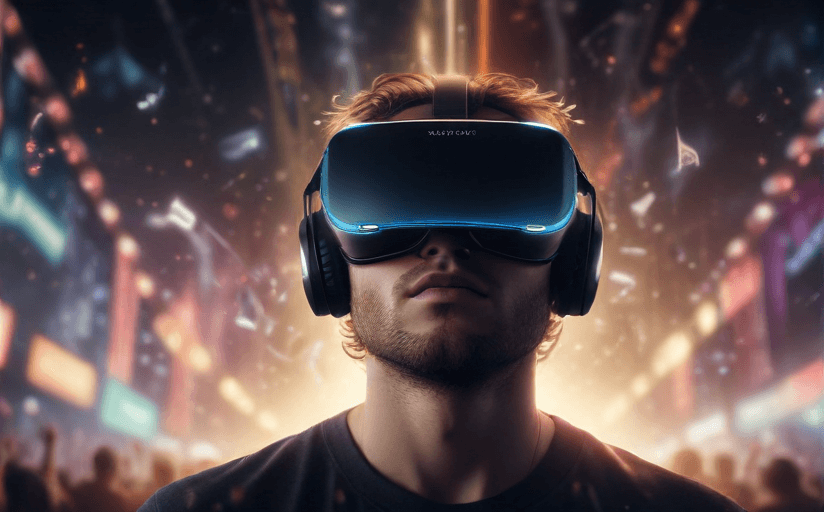Revolutionizing Live Music: The Impact of Virtual Reality on Concert Experiences
In the recent past, technological evolution has revolutionized various sectors of the entertainment world, including the music industry. Virtual Reality (VR), a burgeoning technology, has now made its way into the realm of live concerts, bringing about a seismic shift in the way audiences experience live music.
Blurring Boundaries: Reality versus Virtuality
The advent of VR technology has blurred the lines between reality and virtuality. With this immersive technology, music lovers can enjoy a realistic concert experience without leaving their living rooms. You no longer need to carve out specific dates, travel miles, or jostle with the crowd at music festivals. VR music concerts carry the essence of the live event and deliver it to you wherever you may be. Now you can sing along with the artist, feel the beats, and get absorbed in the tunes without any geographical restrictions.
Advantages of VR Concert Experience
The VR world renders an immersive, 360-degree concert experience to the audience. With virtual headsets and binaural sound, these VR concerts can mimic real-life scenarios, delivering an unprecedented, immersive experience to the audience, irrespective of their location.
Adapting to VR: Artists and Venues
Artists and venues are rapidly adapting to this game-changing technology. Interactive VR platforms have fostered an environment where artists can not only reach out to a global audience but also interact with them, which was not feasible in a traditional setting.
Technical Aspects of VR Concerts
The technical aspects of VR concerts involve a blend of audio and visual elements that work together to create the immersive experience. Cameras capture the performance from various angles, and this is combined with spatial audio technology to create a sense of presence for the viewer. The result is a fully immersive virtual environment that makes users feel as though they are actually there at the concert venue.
Growth of VR Concert Market
The VR concert market is expanding rapidly as more people around the world gain access to VR headsets. Recent data suggests that the VR content market may exceed $5 billion by 2021.
The Future of VR in Concerts
With continuous tech advancements, the capabilities of VR will become limitless. Spectators can expect more interactive VR features in the future, like ability to switch viewing angles, interacting with the artist, and much more.
Real-Life Examples
Renowned artists like Billie Eilish and Tupac have taken advantage of VR to extend their concerts' reach. Tupac appeared at the Coachella music festival in the form of a 3D hologram. Billie Eilish also hosted a live VR concert, where fans globally were virtually teleported on stage with her.
Possible Drawbacks
Like all technologies, VR also comes with potential drawbacks. Issues such as limited access to quality technology, high cost of VR devices, and health risks like nausea and eye strain persist. But with advancements, these constraints could be considerably minimized in the future.
In conclusion, by combining the dynamism of live music with the virtual world's interactivity, VR concerts have revolutionalized the music industry by delivering a new form of immersive entertainment that transcends geographical boundaries.


















Comments
Leave a Comment